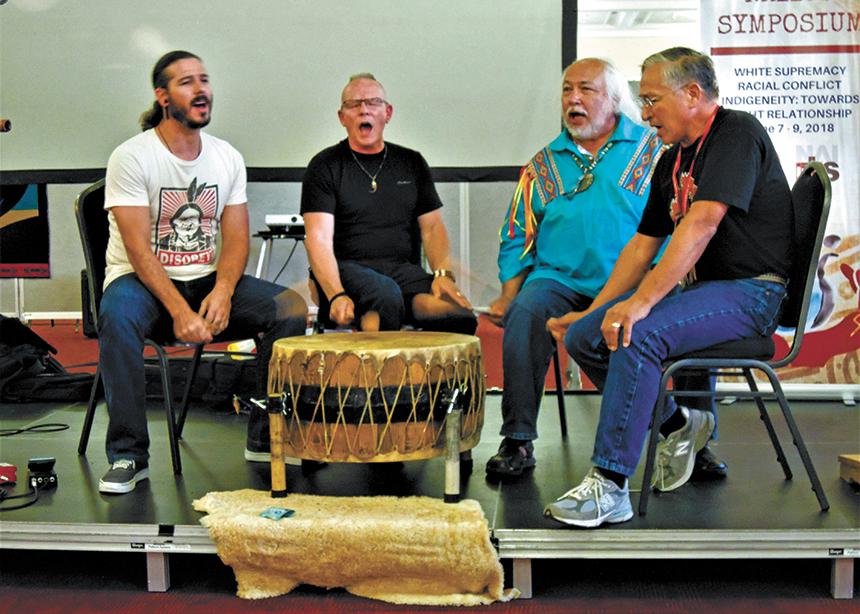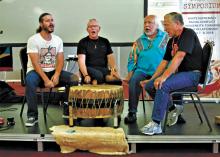The 20-or-so Mennonites who attended the North American Institute for Indigenous Theological Studies (NAIITS) symposium were humbled by the grace of their hosts who welcomed them, without hesitation, into the conversation. They gathered in early June at the Acadia University campus in Wolfville, Nova Scotia, for this symposium on white supremacy, racial conflict, indigeneity and working towards right relationships.
NAIITS was formed to offer Indigenous and non-Indigenous students of theology opportunities to pursue alternative learning and research from an Indigenous perspective. The NAIITS community meets annually to facilitate intercultural and ecumenical dialogue regarding Indigenous expressions of theology, and explores the social and historical realities that implicate the present-day settler-Indigenous relationships.
The Mennonite role was partly as participants and partly as observers of this charged commentary on the history of Indigenous and non-Indigenous relations and the ways in which we can pursue reconciliation. NAITTS founder and current chair, Dr. Terry LeBlanc, said more than once, “You are now part of the NAITTS community, whether you like it or not.”
The symposium began with a presentation by LeBlanc, who emphasized the importance of de-centering whiteness in ideology. The various presenters covered subjects related to Indigeneity, theology, and social justice, culminating in calls for everyone to move toward more equitable societies. Other speakers highlighted their own experiences of colonialism and discrimination against Indigenous groups in their home countries, which showed clear parallels to Canada’s colonial history.
The conversations that were sparked by these speakers were profound and challenging, and the talking circles focused on collaborative learning. Many of the Mennonite attendees shared feelings of gratitude for the learning experiences provided by the symposium, and the conversations continued in a variety of ways outside of the official events and spaces.
Joe Heikman from Saskatoon, shared his realization that “white supremacy is about unchallenged assumptions that my culture, my understanding, my ways of being are better than others—or that my western ways are simply the only ways, and alternatives are unrealistic or non-existent.”
Another core theme of the symposium was the connection between colonization and Christianization. This is a difficult subject to embrace as Mennonite history is wrought with experiences of persecution and resettlement. However, the repercussions that this resettlement had on Indigenous people are undeniable. Given their heritage Mennonites should be able to empathize with the anxiety of displacement and the loss of belonging that Indigenous peoples have experienced.
It is the responsibility of everyone to take steps toward reconciliation, as we all benefit from being in right relationship with each other. By understanding that it is a process and not an event, we can view reconciliation as a dynamic relationship and we can be empowered to continue working on it. It is crucial to view the treaties as an ongoing covenant which require promises to be fulfilled.
If people feel overwhelmed, a good place to start is by reading the calls to action from the Truth and Reconciliation Commission, researching treaties and ongoing land claims, visiting local band offices, or learning about and celebrating Indigenous culture. Most importantly, we must all be committed to repairing and fostering relationships with Indigenous peoples.



Add new comment
Canadian Mennonite invites comments and encourages constructive discussion about our content. Actual full names (first and last) are required. Comments are moderated and may be edited. They will not appear online until approved and will be posted during business hours. Some comments may be reproduced in print.